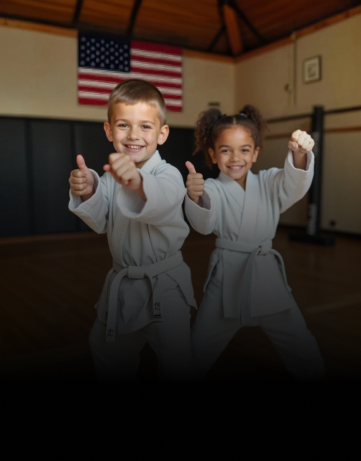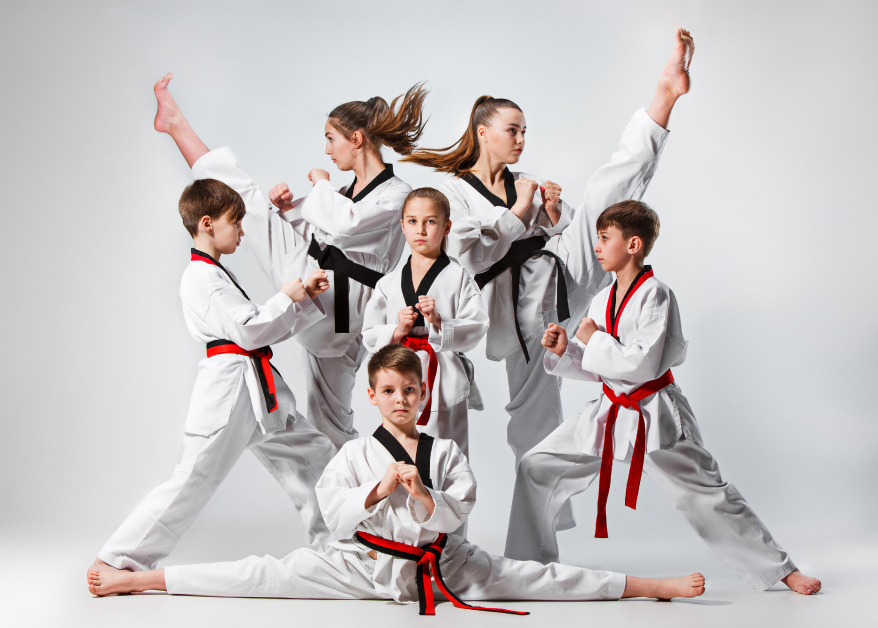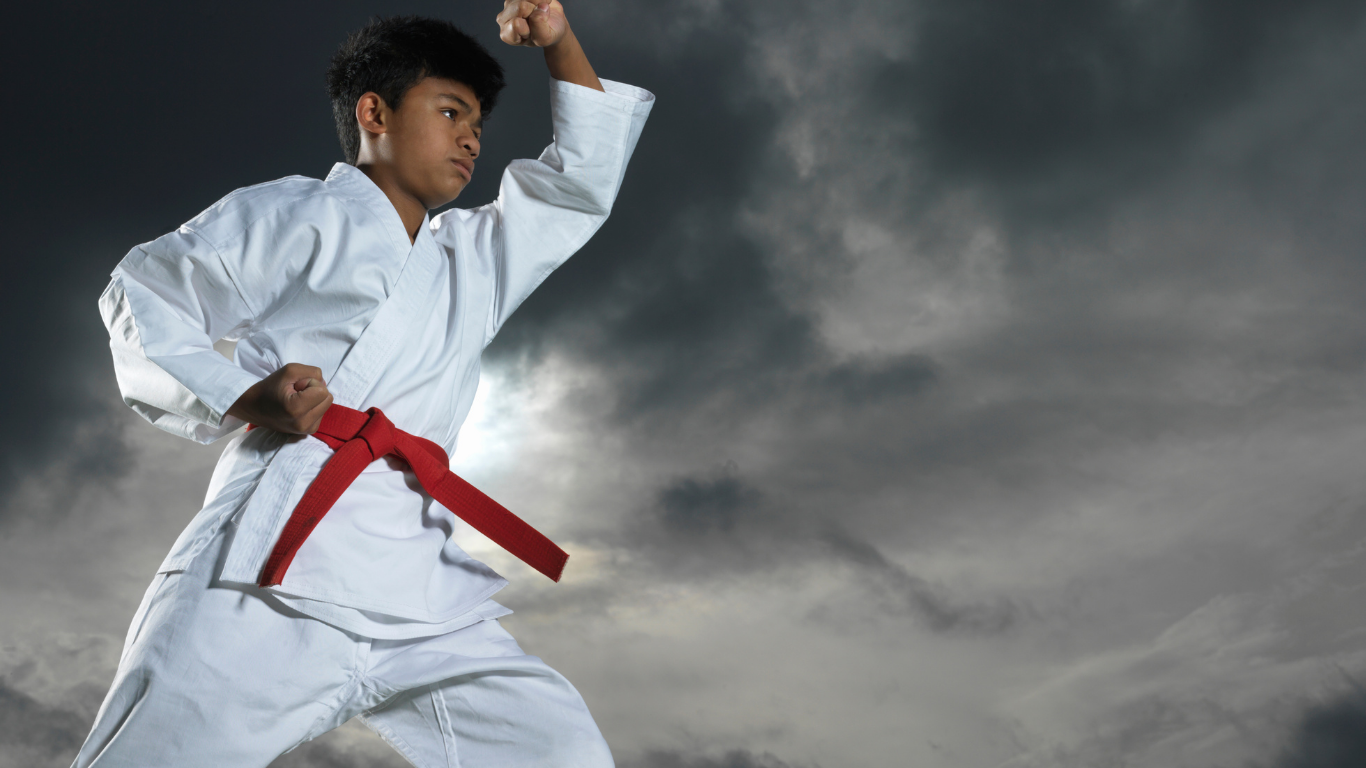Family Martial Arts – Classes that Bring Parents and Kids Through Training
Just How Karate for Children Can Increase Confidence and Self-control in Youthful Martial Artists
Karate for children provides an unique chance to develop self-confidence and discipline in young martial artists. As they discover new strategies and face challenges, they not only get abilities yet also establish a solid feeling of self-worth. This structured atmosphere motivates them to appreciate the trip of renovation. However how does this training equate right into their day-to-day lives? Discover the deeper connections that make karate even more than simply a sport.
The Relevance of Self-confidence in Youth Development
Self-confidence is a crucial structure block in childhood advancement. When you nurture your youngster's self-confidence, you equip them to encounter obstacles, take threats, and share themselves openly. Youngsters with self-confidence are a lot more eager to discover brand-new tasks and social circumstances, which can result in enduring friendships and important experiences.Encouraging your child to tip out of their comfort area cultivates durability. They discover that failure isn't the end yet instead a stepping stone to success. By commemorating their success, despite exactly how small, you help them recognize their abilities and worth.In this journey, assistance and favorable support from you play an essential duty. Whether it's via appreciation or merely existing, your involvement increases their confidence. As they grow, this confidence ends up being a long-lasting property, outfitting them to browse both difficulties and opportunities with a strong feeling of self.
Exactly How Karate Instructs Discipline and Emphasis
Karate helps you build discipline and focus through its organized training program. As you practice mindfulness during each session, you'll find out to concentrate far better both on and off the floor covering. And also, setting and attaining goals in martial arts reinforces your capacity to stay attentive and committed.
Structured Training Regimen
While you participate in karate training, you'll quickly uncover how an organized program instills self-control and emphasis in young professionals. Each course follows a details style, consisting of workouts, method practice, and sparring. This consistency educates you to appreciate the procedure and devote to improvement. As you find out kinds and techniques, you establish a feeling of responsibility for your own progress.The structured setting encourages you to set objectives, whether understanding a new belt or improving a kata. You'll find that staying focused during courses and drills sharpens your concentration. The self-control you cultivate in karate prolongs past the dojo, favorably impacting your schoolwork and daily regimens. Each session strengthens the importance of commitment, assisting you turn into an extra disciplined individual.
Mindfulness in Practice
As you practice karate, you'll discover that mindfulness ends up being an important part of your training. Each relocation requires your full interest, helping you stay concentrated on today moment. You'll discover to ignore diversions and focus on your breathing, activities, and objectives. This increased understanding hones your reflexes and improves your discipline.During sparring or forms, you'll discover the importance of being mentally present - Karate Salisbury MD. You'll see how this emphasis not just enhances your method however likewise builds your confidence. By practicing mindfulness in martial arts, you grow patience and durability, crucial attributes that expand beyond the dojo. This way, karate teaches you to harness your mind, aiding you establish a regimented approach to obstacles both on and off the floor covering

Setting Goal Techniques
Establishing goals in martial arts isn't practically gaining belts; it's a powerful means to cultivate self-control and emphasis. When you set certain, achievable targets, you produce a roadmap for your progress. Instead of simply intending to improve your kicks, try concentrating on understanding a particular technique each month. This approach keeps you inspired and engaged.Breaking down bigger goals into smaller, convenient actions assists you track your development and celebrate little triumphes along the road. Whether it's improving your stance or raising your sparring endurance, every objective enhances your dedication. As you achieve these goals, you'll build confidence in your skills and establish a solid feeling of discipline that prolongs past the dojo right into day-to-day life.
Structure Strength Via Martial Arts
Fighting style, particularly karate, supplies kids a distinct chance to develop durability in a helpful atmosphere. In classes, they face obstacles that press their limitations, whether it's grasping a new method or sparring with a companion. Each trouble, like a missed out on kick or a shed match, betting ends up being a chance to learn and grow.As they practice, youngsters discover to embrace discomfort and maintain attempting, also when things get tough. They uncover that failing isn't the end; it becomes part of the journey. This way of thinking aids them jump back stronger, not just in the dojo, however in day-to-day life.With each obstacle they get rid of, your kid builds self-confidence in their capability to deal with obstacles, sustaining their decision. Through martial arts, they'll recognize that durability isn't practically physical stamina; it has to do with mental grit and determination, empowering them to encounter whatever life throws their means.
The Function of Respect in Martial Arts Training
Regard is a fundamental principle in karate training, cultivating a culture of technique and friendship among trainees. When you step onto the dojo flooring, you're not just finding out methods; you're also discovering to respect your teachers, peers, and the art itself (Karate Salisbury MD). Bowing at the beginning and end of course isn't just a procedure; it symbolizes your acknowledgment of others' efforts and dedication.As you develop mutual regard, you'll locate it boosts your discovering experience. You'll listen more diligently to your instructor and gain understandings from fellow students. This environment urges constructive objection and support, permitting every person to grow together.Moreover, respect grows self-discipline. Recognizing the value of effort and humility helps you stay concentrated on your training. In turn, this respect converts into your daily life, boosting your communications and partnerships outside the dojo. With martial arts, you find out that regard is necessary for individual growth and neighborhood structure
Setting Goals and Achieving Success in Martial arts
Social Abilities and Team Effort in the Dojo
While training in the dojo, kids naturally establish vital social abilities and synergy capacities. As they exercise together with peers, they discover to communicate properly, share room, and support one another. Each course offers possibilities for partnership, whether it's during companion drills or group workouts. This team effort fosters relationships and produces a sense of belonging, making the dojo a nurturing environment.Kids additionally get important problem resolution skills. When they experience challenges, such as differences during sparring, they find out to navigate these scenarios constructively. They practice persistence and compassion, comprehending that click for more info everyone has various staminas and weaknesses.Moreover, joining team activities grows a sense of liability. You'll see your child finding out to rely on colleagues and take responsibility for their function in a team. These experiences not only boost their martial arts trip but likewise outfit them with social tools they'll lug into various other areas of life.

The Long-Term Perks of Martial Arts Beyond Childhood
As youngsters expand up and shift into their adult years, the benefits of karate prolong far past the dojo. You'll find that the discipline and focus found out via karate can convert into your academic and expert life. Establishing and achieving objectives in martial arts promotes a solid job values, which can press you to excel in any kind of endeavor.Moreover, the self-confidence gained from competing and grasping techniques can enhance your self-confidence, assisting you deal with difficulties head-on. This durability ends up being invaluable as you face the uncertainties of adulthood.Additionally, the social abilities created via synergy and sociability in the dojo can bring about far better partnerships in both expert and personal spheres. You'll learn to connect effectively, willpower problems, and develop a helpful network.Ultimately, karate shapes not just competent martial artists, but well-rounded people all set to handle the world.
Frequently Asked Inquiries
What Age Is Ideal to Begin Karate for Children?
You can begin karate as early as age 4 or 5, but it often relies on your kid's maturity and interest. Locating a course that suits their age and power degree makes a big distinction.
Are There Any Wellness Advantages From Practicing Karate?
Yes, exercising karate offers countless health benefits. You'll boost your stamina, coordination, and adaptability while improving cardiovascular physical fitness. And also, it improves emphasis and mental wellness, making it a wonderful selection for general physical and psychological health.
Exactly How Often Should Youngsters Participate In Karate Courses?
You need to encourage your youngsters to participate in karate classes a minimum of 2 to three times a week. Consistency aids them learn methods properly and develop skills, making their experience a lot more fulfilling and pleasurable in the long run.
Can Karate Assist With Taking Care Of Anxiety in Children?
Yes, karate can assist take care of anxiousness in children. It instructs emphasis and self-constraint while offering a secure electrical outlet for energy. You'll discover your kid growing a lot more tranquil and certain as they practice frequently.
What Equipment Is Required for Children Beginning Martial Arts?
